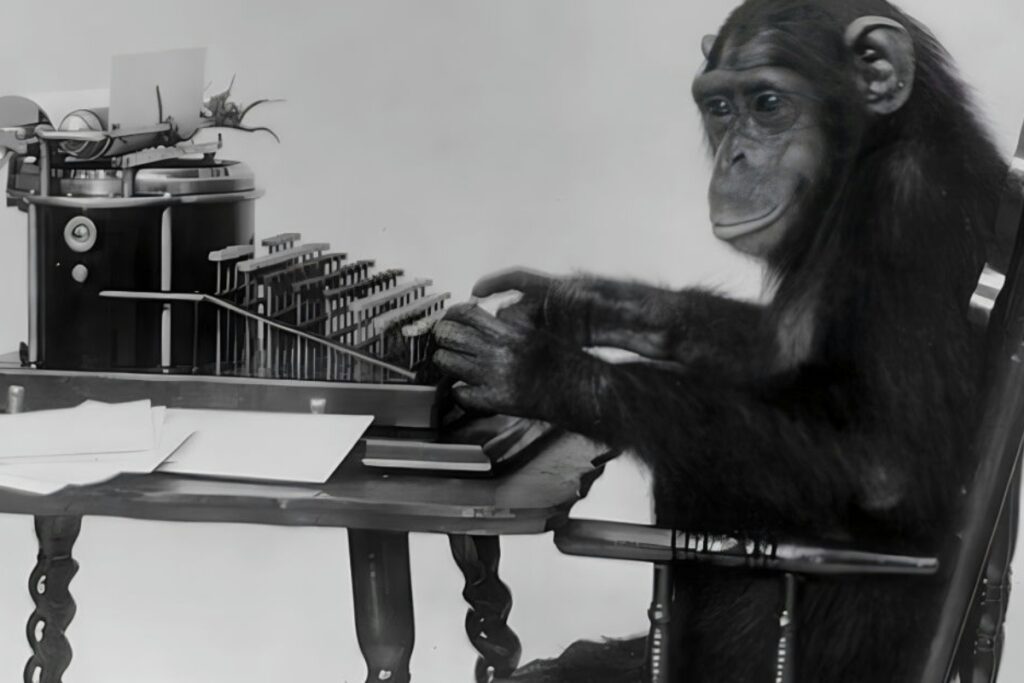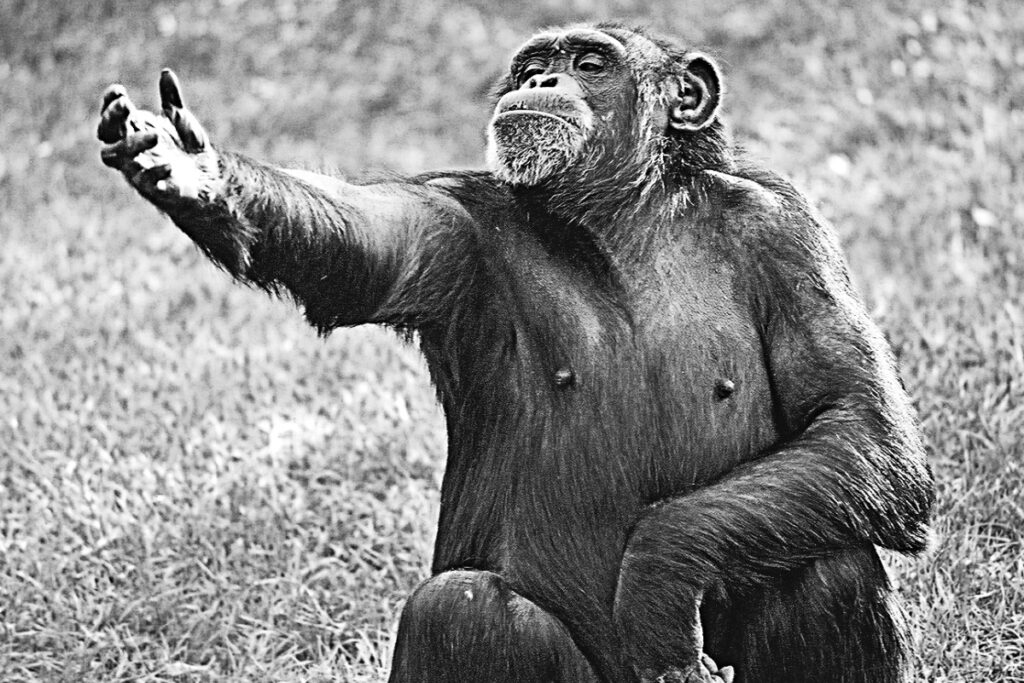
The Infinite Monkey Theorem is a fascinating concept in popular science, positing that a monkey randomly hitting keys on a typewriter could eventually reproduce the works of William Shakespeare, given infinite time. Immortalized in pop culture from The Simpsons to The Hitchhiker’s Guide to the Galaxy, it implies the idea that pure chance could eventually lead to something remarkable.
But now, new research from two Australian mathematicians, Dr. Stephen Woodcock and Jay Falletta, has put this theory under the microscope, suggesting it might be far more improbable than previously thought—especially when time and monkeys are finite.
Why Infinity Changes Everything
The Infinite Monkey Theorem hinges on the idea of infinity. In a world without limits, any outcome, however unlikely, is ultimately possible. However, Woodcock and Falletta’s study, published in Franklin Open, challenges this notion by adding two crucial constraints: a finite number of monkeys and a limited timeframe that aligns with the expected lifespan of the universe.

The study contends that even under favorable conditions, a monkey’s chances of randomly typing Shakespeare’s Hamlet are so astronomically low as to be practically impossible. “The Infinite Monkey Theorem only considers the infinite limit, with either an infinite number of monkeys or an infinite time period,” Dr. Woodcock explained. But by applying constraints, their finding shows a vastly different probability that veers toward zero—a stark contrast to the theoretical infinity that makes the theorem sound plausible.
The “Finite Monkey” Experiment
In their calculations, Woodcock and Falletta assumed the monkeys had access to only the tools Shakespeare would need: a simplified 30-character keyboard without numbers, unnecessary punctuation, or capital letters. Even at a steady rate of one keystroke per second, these “typing” monkeys would only get the tiniest fraction of Shakespeare’s works right by the end of the universe.
How tiny? According to the researchers, even the first line of Hamlet would be a long shot. Their models show that a monkey, over the course of the universe’s estimated remaining lifespan of around 10100 years (based on the heat death theory), would be unlikely to get even close to completing a single line, let alone an entire play. Even Curious George, a children’s book of only 1,800 words, would be statistically unattainable under these conditions.

An Army of Monkeys Won’t Help
Recognizing the implausibility of a single monkey’s task, Woodcock and Falletta turned to more extreme scenarios, imagining an entire population of chimps typing away. With about 200,000 living chimpanzees hypothetically working nonstop and typing at a human’s speed, they still found no hope of achieving Shakespeare. While there was a five percent chance that some might type the word “bananas” at some point in their lifetimes, anything longer or more complex remained out of reach. Even given every chimpanzee on Earth, Shakespeare’s works would still be beyond their collective reach by an incomprehensible margin.
Infinite Theory vs. Finite Reality
This study presents a compelling case that infinity-based theories often lead to misconceptions when applied to real-world scenarios. As Woodcock noted, “Infinity gives you a result which is grossly misleading in the real world.” While many people intuitively understand that a monkey probably couldn’t write Shakespeare, the mathematical certainty provided by this study helps emphasize just how unlikely the theorem is when taken out of an infinite context.

Some experts in mathematics consider this “debunking” unnecessary, as many mathematicians already grasp the improbable nature of the Infinite Monkey Theorem when applied to finite resources. Ian Stewart, emeritus professor at the University of Warwick, told NBC News, “Every mathematician in the world knows this.” Nonetheless, this formal exploration provides a scientifically satisfying demonstration that reinforces what intuition and skepticism have long suggested.
Why Monkeys and Typewriters Remain Riveting
The Infinite Monkey Theorem may be mathematically improbable, but its appeal persists because it offers a simple way to imagine the power of randomness and probability over time. This new research doesn’t negate the theorem’s cultural value; rather, it refines our understanding. We are fascinated by the notion of monkeys—and by extension, randomness—potentially recreating human masterpieces. This line of thinking has influenced everything from how we model large-scale data processing to algorithms simulating randomness.

Beyond Monkeys: AI and Human Creativity
While random chance might never deliver Shakespeare through monkeys, today’s AI systems are already producing impressive content, raising new questions about creativity. Unlike the random typing of monkeys, AI operates through pattern recognition and learning, aiming to produce meaningful outputs based on human-like processes rather than pure chance. The researchers themselves note that while monkeys might never pose a threat to Shakespeare’s legacy, the continued use of AI could forever change the landscape of creative writing.
For now, the idea of monkeys creating literature remains a charming theoretical exercise that hints at the limits of randomness and infinity. But if there’s one conclusion to draw, it’s that we might want to leave the monkeys alone and instead focus on tools that actually build on structured inputs—such as the very AI and algorithmic processes we use today.
Sources:
- ScienceDirect: A numerical evaluation of the Finite Monkeys Theorem
- IFL Science: One Monkey Can’t Write Shakespeare In The Universe’s Lifetime, Better Get An Army
- NBC News: Could a monkey write Shakespeare before the universe dies? New research questions old theorem
Stay connected with us for more stories like this! Follow us to get the latest updates or hit the Follow button at the top of this article, and let us know what you think by leaving your feedback below. We’d love to hear from you!







